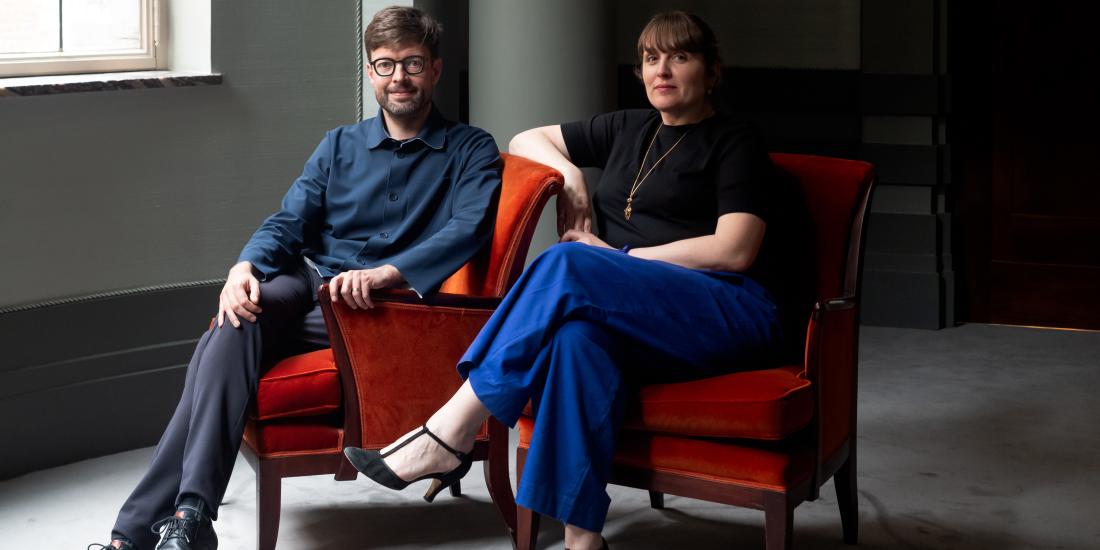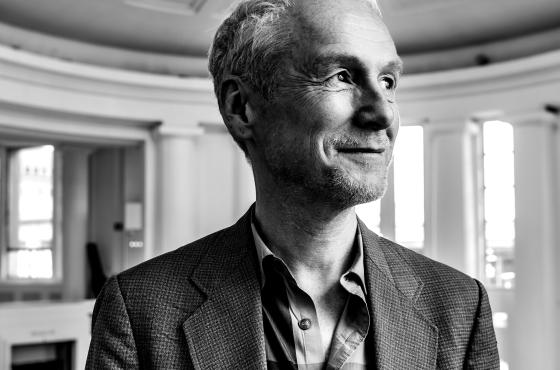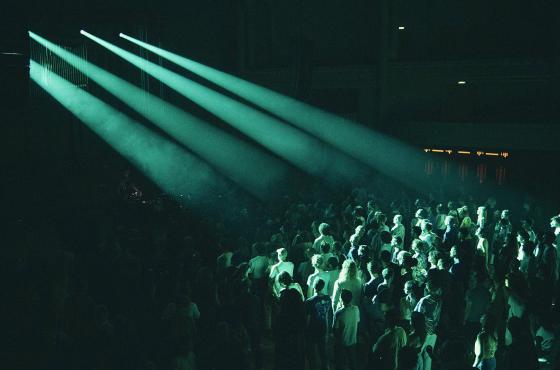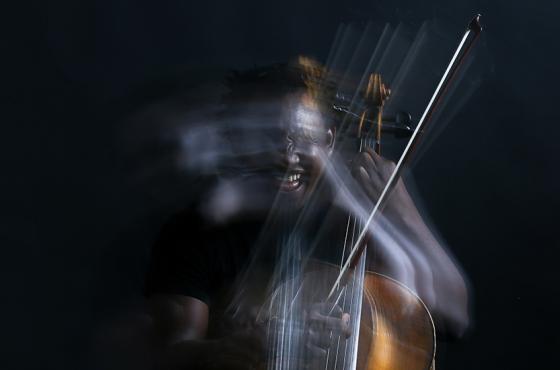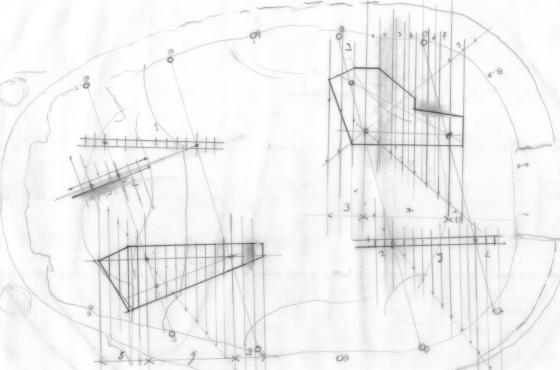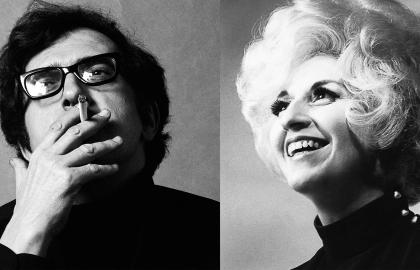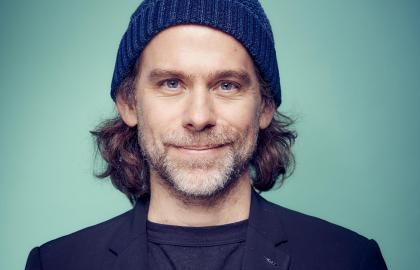Aurore Aubouin put in thirteen years at La Monnaie and two years at the Philharmonie de Paris. Jeroen Vanacker, in turn, hails from Concertgebouw Brugge, where he spent no less than 21 years. In other words, Bozar's new music directors have excellent credentials, and they are not the biggest job-hoppers. Until recently, the two did not know each other personally – it was the gut feeling of Bozar’s director Christophe Slagmuylder that brought them together. But they already instinctively sense who can best answer which questions, and where they can complement each other. For the entire interview, they barely interrupt each other, never speak at cross purposes. They unfailingly come across like a single voice.
“It’s true that we’ve never worked together before,” Aurore Aubouin admits, “but thanks to common acquaintances I did already have an impression of Jeroen. A positive one! He was always presented to me as a man of integrity and openness, someone who believes in the intelligence of the collective. I also admired the coherent and elegant programmes that he had put together at Concertgebouw Brugge for all those years.”
Your turn to shower your colleague with compliments, Jeroen.
Jeroen Vanacker: "(laughs) I, in turn, was aware of her fabulous reputation at La Monnaie, as someone who got huge, ambitious productions off the ground by way of a strong but also open and transparent organisation. Add to that her experience at the Philharmonie de Paris – an institution that delivers strong dramaturgical work, and that’s always been a shining example for me. So you definitely need not tell me why she is a great asset to the music department at Bozar.”
Is your complementarity the strength of this pairing?
Vanacker: “That’s certainly the gameplan we have in mind. The idea is that I will be a little more focused on the programme, and Aurore will lead the production team. You might perceive that as a split road, but I think that we both strongly believe that you can’t see production and programming as separate entities. You have to put everything in place right from the start – together! That’s the dynamic we want to achieve at Bozar.”
Aubouin: “It’s important that we fundamentally agree on where we want to go with the music programme. Even though that, based on our expertise, we will probably each place slightly different emphases, and Jeroen will logically be more concerned with dramaturgy and storytelling. But there must be an artistic dialogue. And I also think that this is where our strength lies.”
The Brussels context is an essential component of this story, as much as the richness à la belge.
Give us a flavour of this dialogue so far. Where do you want to go with Bozar over the coming years?
Vanacker: “In short, we want to be transmusical and to connect a diverse range of musical genres. And really not just because this chimes with Bozar’s transdisciplinary ambition to integrate all art forms under this one roof. Recently, you can see that a sort of hybrid listening has arisen among young generations – let’s call them the shuffle generations. Pigeonholing is a thing of the past, and we want to tap into this new fluidity. Because I believe that this offers major opportunities for classical music. With a transmusical programme you can appeal to a new audience.”
And for that you had to move to Bozar?
Aubouin: “For me, the Brussels context is an essential component of this story. Content-wise, my job is very similar to what I was doing in Paris. But there are more opportunities for collaborations here. The social fabric is completely different and we really want to convey the richness à la belge in the music programme.”
Vanacker: “Yes! There is the situation in Brussels, the federal aspect, the bicommunal aspect, and so on. But Bozar’s history is also important to me. The pioneering role played by this institution in the 20th century on a musical level is incredibly inspiring. The fusion of past, present and future should also play an important role in our programming.”
Aubouin: “And then there’s what Jeroen has just touched on: the linking of diverse disciplines. You’re not creating a musical focus here in a vacuum. You constantly have to ask yourself how the music programme interacts with Bozar’s exhibitions, for example. Ultimately, there are few if any other art houses in Europe where that is at all possible.”
In short, we want to be transmusical and to connect a diverse range of musical genres.
Can you give us some examples?
Vanacker: “First of all, I want to emphasise that this season was largely put together by our predecessor and the current programming team. They were already doing a great job shaping Christophe Slagmuylder’s transdisciplinary vision. For example, one of this season’s big Bozar exhibitions is centred on the artist couple Hans/Jean Arp & Sophie Taeuber-Arp, and the music programme also contains several interesting examples of couples. There’s Luciano Berio and Cathy Berberian. Or the piano duo Pavel Kolesnikov and Samson Tsoy. It is fascinating to translate the exhibition themes into music and vice versa. But that also demands a different type of cross-disciplinary collaboration and communication, which can be challenging.”
Aubouin: “But, of course, there are more ways to work transversally, and we also want to question how you experience a concert today. For example, by taking a more relaxed approach to our matinee concerts on Sunday and putting the audience on stage. Or by developing totally new concepts, such as Staging the Concert, a series of concerts that have been tailor-made for Bozar. The idea is to create a mise-en-scène for music. In one way or another, because we don’t want to be too prescriptive about the contours of this, to allow artists complete freedom to get their teeth into the music. And once again, you see the strength of our collective coming to the fore here, because you can only achieve something like that with a strong production team.”
Which musical heart-stopper best embodies your vision this season?
Vanacker: “If we’re talking transmusicality, then the first people that spring to mind are Bryce Dessner and Caroline Shaw. They are truly versatile creators who draw inspiration from various musical styles to do their own thing. They are busy elongating the canon – something that we need to take even further in the coming years.”
Aubouin: “Classical music isn’t often described as progressive when it comes to social themes, but fortunately there is more and more awareness. There’s a shift underway at the major houses and orchestras. Take the Montréal Symphony Orchestra’s programme: they are very consciously opting for Eko-Bmijwang (As Long in Time as the River Flows) by composer Barbara Assiginaak. Her heritage lies in the Anishinaabe or Ojibwe tribe - one of Canada's first people - and her work really deserves to be spotlighted. In this, by the way, Bozar also has an important role to play internationally, because we shouldn't be modest about that: within the European network of music halls, we do have some weight to help initiate this change.”
Classical music isn’t often described as socially progressive, but fortunately there is more and more awareness.
